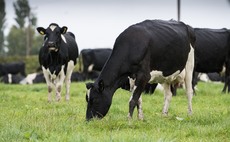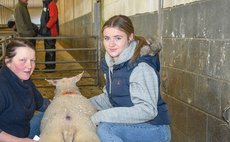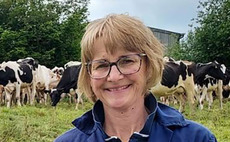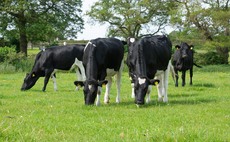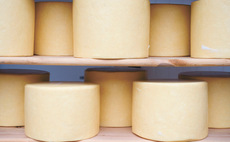
With thanks to the National Pig Association, its March magazine begs an important question or two about business psustainability™ for farmers in all livestock or crop sectors.
BBC Radio 4Â’s Farming Today also deserves praise for invaluable guidance in its Friday, March 3, programme, not from Government nor academia, but from a successful farmersÂ’ organisation.
Ěý
[Trademark:ĚýpsustainabilityĚýowned by the author, silent Â’PÂ’ is forĚýprofit]
Ěý
First, those questions:
Ěý
1) Why are four whole pages in Pig World devoted to giving away AHDBÂ’s market analysis and forecasts that surely ought to be commercially confidential under pig farmersÂ’ ownership? The same thing occurs in milk, beef and lamb.
Ěý
2) More than two years since Defra initiated its dairy sector review without yet producing an outcome, why is the pig industry pinning its hopes on a similar, later established review of its sector?
Ěý
3) Has anyone among farming’s alphabet soup of organisations – NPA, NSA, NBA, NFU, NFUS, FUW, UFU, RABDF or indeed AHDB – looked elsewhere for ways to achieve stronger bargaining power for farmers in their dealings with customers?
Ěý
The simple economics are clear in AHDBÂ’s market intelligence. It identifies that the early 2023 recovery in finished pig prices Â’Â…has been driven by tightening domestic (ieĚýUK) suppliesÂ’. This illustrates perfectly the rule: To influence selling prices, control supply.
Ěý
A good example is the livestock sale ring: 10 attractive beasts with only one buyer wanting just two or three, the buyer calls the shots. But 10 eager breeders scrapping over one elite bull, ram or boar, you know what happens.
Ěý
Ask yourself, which side of theĚýsupply/demandĚýbalance do farmers have the ability to influence, if you and others so choose?
Ěý
In farm commodities where buyers call the shots (i.e. all of them), the only way I can see farmers redressing the power imbalance is managing sufficient volume, in perhaps 10 per cent-plus chunks, of farm gate supply into the chain.
Ěý
Indeed, decent prices being paid for milk, beef and lamb recently, and now finished pigs, were influenced largely by buyersÂ’ eagerness (desperation?) for the quantities they need in competition with each other.
Ěý
Next come the tricky bits:Ěý(1) Getting farmers organised, within the law of course, to manage supply to be lower than demand by just enough to keep buyersÂ’ pencils sharp; and (2) maintaining loyalty to the collective cause in the face of buyersÂ’ courtship rituals to divide and rule.
A working example from Aunty Beeb came from the recent interview with PhilippeĚýAppeltans, boss of Belgian fruit and veg co-operativeĚýBelOrtaĚý().
Ěý
For its 1,000-plus farmer members in February, loose tomatoes were earning £2.66/kg (€3), about 70% higher than UK prices, according to Farming Today.
Ěý
In Belgian shops, those standard tomatoes in Belgium were selling at ÂŁ4.66/kg, compared with ÂŁ1.75 here. This suggests benefits to both parties: higher prices for growers, and assured supply plus higher margins for retailers.
Ěý
In stark contrast, MrĚýAppeltansĚýsaid UK prices demonstrated Â’a race to the bottomÂ’ in food retailing.
About co-op membership for farmers, he explained: “It creates bargaining power and a better position in the supply and value chain.”
Ěý
Of course, those two little words, Â’Â…and valueÂ…Â’, are crucial.Ěýµţ±đ±ô°ż°ůłŮ˛ąÂ’˛őĚýgrower members also gain from being able to focus on what theyÂ’re good at – growing the crops – while relying on the co-op to take care of marketing and sales, admin and legal complianceÂ… none of which is rocket science.
Ěý
Nevertheless, asked by the BBCÂ’s redoubtable Charlotte Smith for his advice to UK farmers.
Ěý
MrĚýAppeltansĚýsaid: “Work together, set up producer organisations, gain power, resolve to innovate.”
And the engine that drivesĚýµţ±đ±ô°ż°ůłŮ˛ąÂ’˛őĚýrevenues? The good old auction system.
Ěý
Quoting directly from its website: “The auction is in the hands of producers. Those who actively produce fruit and vegetables can – for a limited contribution – become shareholders in the auction. From that point forth, the producer is a partner and entitled to supply the auction.”
Ěý
Could this work here? Not if you believe the NFU representative on a discussion panel at last autumnÂ’s UK Dairy Day.
Ěý
Asked about the potential for non-cartel, legally constituted supply management by groups of dairy farmers, he said Â’thereÂ’s no interest here in supply managementÂ’.
Ěý
I wasnÂ’t able to ask the essential follow up: where do you mean by Â’hereÂ’, UK or NFU?








